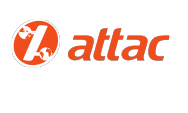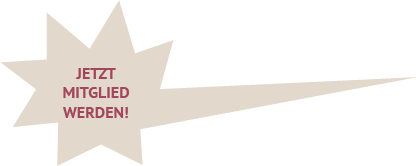EU treaty: Not respecting the Irish NO will damage democracy
Attac Austria
Attac Flanders
Attac France
Attac Germany
Attac Griechenland
Attac Netherlands
Attac Poland
Attac Spain
European Attac organizations have sharply criticized Irish Prime Minister Brian Cowen for his announced intention of calling for a new Irish referendum on the stalled Treaty of Lisbon. Cowen is programmed to announce this new referendum this Thursday 11th December, at the EU Summit. "This surrender by Cowen is the result of unprecedented and undemocratic pressure by other European heads of government, which are evidently only willing to respect democratic decisions if they correspond with their own plans", Jutta Sundermann said, representative of Attac Germany in the joint working group of the European Attac organizations.
After the Irish people’s NO ", several European heads of government called for Ireland to leave the European Union, while others insisted on a new referendum. "The vote of the Irish citizens must be respected. Anything else will do great damage to democracy in Europe ", Jutta Sundermann said. The Irish people had been the only European citizens allowed to vote on the European Treaty. In all the other states referenda had deliberately been avoided by the governments and the Treaty had been pushed through without consulting the people. "The content of the Treaty had already been dismissed at the referenda in the Netherlands and France three years ago", Jutta Sundermann stressed. 90 percent of the current Treaty is identical to the draft "European Constitution" rejected by the voters of the Netherlands and France.
The Irish NO has provided the opportunity for a long-overdue course correction on the part of the EU – towards a democratic, social and peaceful Europe. This chance now has to be seized. "Moreover, the current financial and economic crisis shows that to carry on along the present path means to continue on the road to disaster", Hugo Braun, also member of the European Attac working group, said.
As early as spring 2007 the Attac organizations of 15 European Union countries and Switzerland presented to the public their "Ten principles for a democratic EU Treaty". This paper is at present being updated. In it Attac calls for democratic and transparent processes, in the course of which a new common basis for the EU should be developed. Transparency, clarity, democratic rules and elements of direct democracy should self-evidently be part of the reality of the EU. The EU must not – as in the Treaty of Lisbon – be committed to a particular – in this case neo-liberal – economic system. Rather than that the abolition of safeguards on wages and on minimum social and environmental standards must be stopped and reversed. Basic rights must be better protected. Hugo Braun: "And last but not least, the EU must be committed to peace, not to a new arms race."
Towards a new legal foundation of the European Union
Attac’s Ten Principles for a Democratic Treaty (abbreviated form)
1. START A DEMOCRATIC PROCESS:
Any new Treaty shall be elaborated and adopted democratically.
2. IMPROVE DEMOCRACY:
Any new Treaty must be built on the best existing democratic principles. The present EU is not built on a clear separation of powers and suffers from a deep democratic deficit.
3. INSTALL TRANSPARENCY
At present, citizens encounter difficulties in exercising their right to obtain information. Discussions of the Council and the Permanent Representatives Committee (Coreper) are frequently closed to the public. Lobbying is a pervasive phenomenon that undermines democracy.
4. DEVELOP PARTICIPATION AND DIRECT DEMOCRACY
A new institutional Treaty must include the fundamental right to direct participation of citizens in public affairs. It should offer understandable, usable and far reaching forms of direct democracy.
5. IMPROVE FUNDAMENTAL RIGHTS
Any new Treaty must be established on the basis of or as an improvement to the most progressive fundamental rights already existing in international treaties, especially the International Bill of Human Rights, the European Convention for the Protection of Human Rights and Fundamental Freedoms (ECHR), the Turin version of the European Social Charter and the European Code of Social Security.
6. PROTECT AND IMPROVE DEMOCRATIC ACHIEVEMENTS
Democratic achievements, social, civil and worker’s rights, and rules for the environment and public health are under severe pressure from provisions in earlier treaties, especially the principles of competition and liberalization. Any new Treaty must not endanger these conquests and give people in Europe , parliaments and governments a tool to further develop these democratic achievements on a cooperative basis.
7. OFFER SPACE FOR AN ALTERNATIVE ECONOMIC ORDER
Any new Treaty must respect the aforementionend fundamental values and democratic principles. It must offer space for implementing alternative policies instead of fixing one specific economic model.
8. DEFINE GOALS INSTEAD OF MEANS
A true, vibrant democracy determines the means by which to achieve the respective objectives of its constitution. Stipulating the concrete policies in the constitution itself is inappropriate.
9. RACE TO THE TOP IN SOCIAL RIGHTS AND TAXATION
In a region like the EU with economies deeply integrated through decades of liberalisation (of trade, finance and investment), member states are presently engaging in a race to the bottom in vital areas like taxation and social policy. To counter this, it is important that countermeasures can be taken at the EU-level, and that a race to the top is facilitated by specific provisions authorized by a new Treaty.
10. ESTABLISH OBLIGATION TO PEACE AND SOLIDARITY
Concerning the question of security, the aim shall be "peace" (in the broadest sense) and not the build-up of weapons at the international level. The draft CT states: “Member States shall undertake progressively to improve their military capabilities.” The creation of a “defence agency” would have among others the task of “developing armaments”. Any new Treaty should clearly define a strong political ambition of Europe : the EU must be a key actor for the definition of a new international and multilateral order dedicated to the building of peace and to the denunciation of war and militarization as means of settling international disputes.
Attac Austria, Attac Belgium, Attac Denmark, Attac Finland, Attac France, Attac Germany, Attac Greece, Attac Hungary, Attac Italy, Attac Jersey, Attac Netherlands, Attac Norway, Attac Poland, Attac Spain, Attac Sweden, Attac Switzerland
Contact:
* Jutta Sundermann, Attac Germany, phone +49 - (0)175 - 8666 769
* Hugo Braun, Attac Germany, phone +49 - (0)171 - 5422 515



